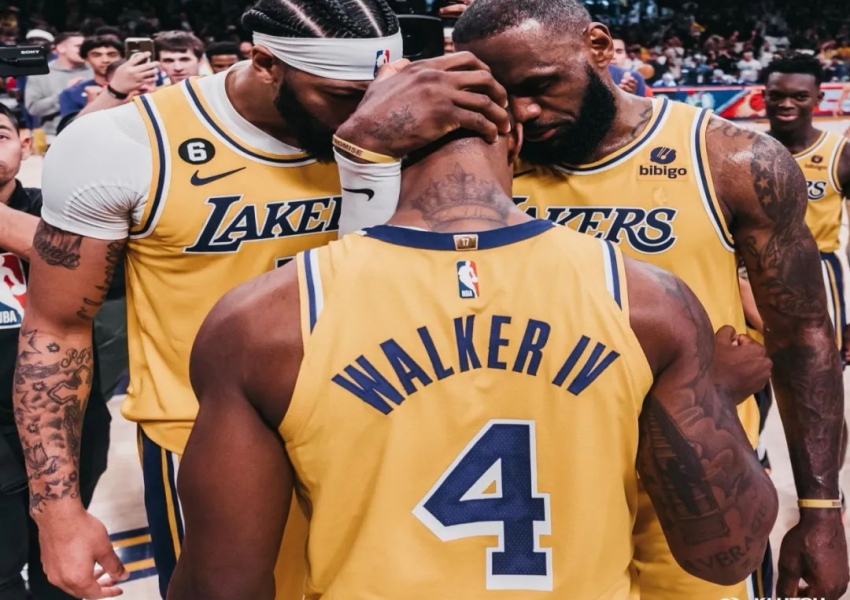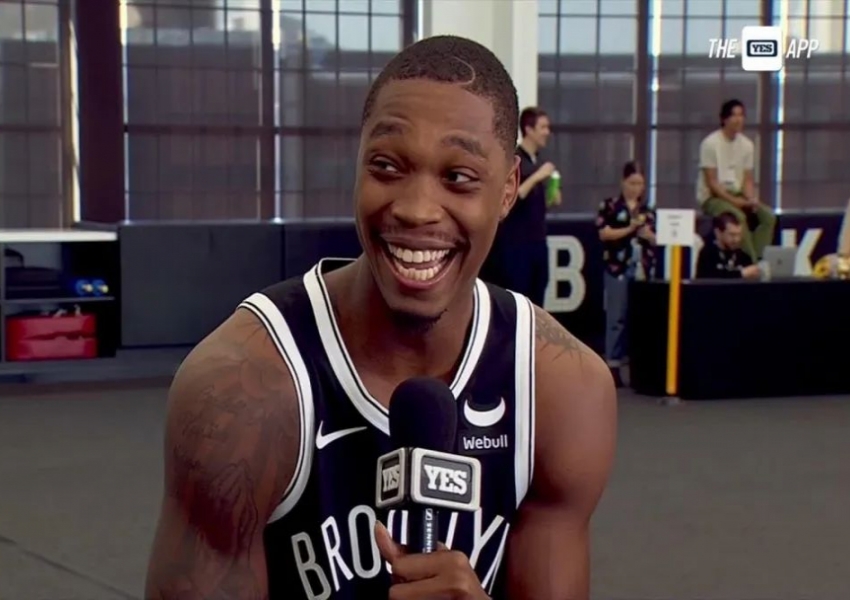Remember Him? Why 25-Year-Old Ex-Laker Lonnie Walker is Still Without a Team
The free agency market has been open for over two weeks now. Given the challenging environment this year, several skilled players are still awaiting offers, including some promising young talents like 25-year-old Lonnie Walker. Spurs and Lakers fans will certainly remember Walker. He was the 18th overall pick in the first round of the 2018 draft. He spent his first four seasons with the Spurs before signing a one-year mid-level exception with the Lakers.

During his season with the Lakers, Walker garnered more attention and played quite well. Averaging 23.2 minutes per game, he scored 11.7 points, grabbed 1.9 rebounds, and dished out 1.1 assists, with shooting percentages of 44.8% from the field and 36.5% from beyond the arc, resulting in a true shooting percentage of 57.0%. In the playoffs, although his playing time decreased to 13.8 minutes per game, he still managed to average 6.2 points. Notably, in the series against the Warriors, Walker emerged as a surprising key player. In five games, he scored in double digits in four of them. In the crucial Game 4, Walker scored 15 points, all in the fourth quarter, helping the Lakers take a 3-1 series lead against the Warriors.

Despite the Lakers being swept by the Nuggets in the Western Conference Finals, Walker's standout performance in the semifinals earned him considerable recognition from fans. Many expected Walker to at least secure another mid-level exception in free agency. However, to everyone's surprise, he only managed to sign a minimum contract with the Nets.

During his tenure with the Nets last season, Walker played in 58 games, all as a substitute, averaging 9.7 points, 2.2 rebounds, and 1.3 assists per game. This was the first time in four years that his scoring average dipped below double digits. However, Walker's shooting improved, with an average of 1.8 three-pointers per game and a three-point shooting percentage of 38.4%, both career highs over the past four years. It's worth noting that Walker's average playing time was only 17.4 minutes per game. If extrapolated to 36 minutes, he would average 20.1 points per game, the highest of his career. While such calculations aren't always accurate, they highlight Walker's undeniable scoring ability in limited minutes, making him a solid option as a scoring punch off the bench.
Former Nets coach Jacque Vaughn praised Walker: "We were very fortunate to sign him on a minimum contract. He shouldn't be playing for just the minimum. Without a doubt, this guy belongs to a team that can call him home. Hopefully, that team is us." Walker himself is confident, having stated on social media before free agency began, "I haven't even reached my peak yet. You'll see soon enough. The apologies and disrespect will be just as loud."
While Walker's aspirations were high, reality has been harsh. As of now, no team has shown interest in him. So why is it that a 25-year-old like Walker remains unsigned?
From a personal standpoint, Walker's playing style is somewhat inconsistent. While he can hit three-pointers, his shooting isn't always reliable. Like many scoring guards off the bench, Walker's defense is lacking, and his inconsistent availability (missing 50 games over the past two seasons) doesn't help his case.
From an environmental perspective, the new salary cap regulations introduced last year have made teams more cautious in signing players, especially strong teams that want to avoid hitting the second luxury tax threshold, which limits their ability to sign and trade players. Rebuilding teams are focused on the future and are less likely to offer contracts easily. Additionally, the free agent market has been generally unfriendly to guards in recent years. For example, the Wizards' Tyus Jones, a player of considerable talent, has yet to find a team; and Trent Jr., who is worth at least a full mid-level exception, only received a minimum offer, eventually signing a minimum deal with the Bucks.
Walker fell victim to this market dynamic last year as well. Despite playing well enough to warrant a mid-level exception, he only received a minimum contract from the playoff-hopeful Nets. This year, although he performed above a minimum contract level, he still hasn't secured a job.
Given Walker's age and the level of performance he has shown over the past two years, it's unlikely that he will go unsigned next season. As teams finalize their rosters and look to fill gaps, Walker may find himself picked up as a valuable addition. However, expecting Walker to have a career resurgence and exceed expectations significantly may be unrealistic. His role is fairly well-defined: a scoring guard who can come off the bench for about 20 minutes per game and contribute around 10 points.
Moreover, fans must adapt to the current state of the league, where the backcourt talent pool is deep and constantly replenished with fresh talent each year. It's not just Walker; other capable guards must recognize their roles and fit into team dynamics. Otherwise, they risk finding themselves without a team.
In conclusion, Lonnie Walker's current predicament reflects a combination of personal inconsistencies and broader market dynamics. Despite his undeniable talent and potential, he has yet to find a team willing to bet on him. Yet, his journey is far from over, and with his skills and determination, he will likely land on a roster soon. But he, like many others, must adjust to the evolving landscape of the NBA, where recognizing one's role and consistently delivering is key to maintaining a spot in the league.
Copyright Statement:
Author: focusnba
Source: FocusNBA
The copyright of this article belongs to the author. Reproduction is not allowed without permission.
Recommended Blog
- Refusing to Play for China? Zhao Weilu's Bold Decision Shakes the Basketball World
- 6-for-1 Trade! Clippers Should Move Leonard Quickly
- $110 Million for Three Years? The Inside Story of Paul George's Departure: This Time, You Can't Blame Him
- Zhou Qi and Fanbo Zeng Team Up? Goodbye, 19 Teams! Guangdong Stays Unchanged
- $2.6 Million for a Year! S-Tier Move! Did the Bucks Snag the Best Value in the NBA?
- Confirmed! Clippers Fast-Track Trade for Westbrook! New Destination: NBA Champions
- Sudden NBA Workouts! Goodbye, Yang Hansen! This is China’s Top Basketball Talent...
- Awkward Moment! Jaylen Brown Tops the Trending List—Did He Just Speak the Truth?
- $4 Million for One Year: Where Will 35-Year-Old Westbrook Land Next?
- A $16 Million Pay Cut: Klay and Harden to Join the Lakers’ New Big Four?
Hot Blog
- FMVP Fifth?! How 33-Year-Old T.J. McConnell Became a Finals Force in the Shadows
- G6 Meltdown: The Pacers Scored Just 108—So How Did the Thunder Lose by 30?
- The SGA Stopper: Just How Good Has Andrew Nembhard Been in the NBA Finals?
- The Five-Minute Collapse: From G5 Villain to G6 Redeemer—Can Nembhard Bounce Back?
- Not Even Durant Can Get Him: Why 28-Year-Old Ivica Zubac Is Now Untouchable in LA
- The Ultimate Underdog: How T.J. McConnell Became the Unsung Hero of This Year’s NBA Finals